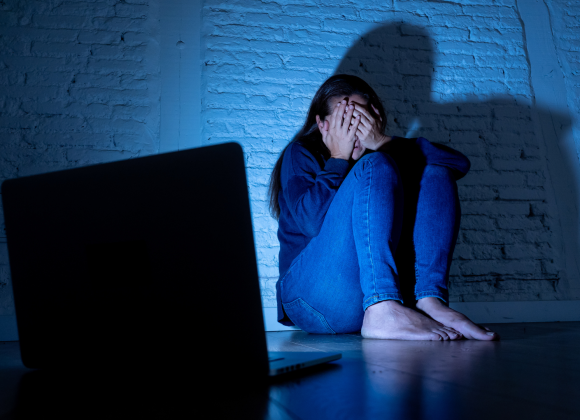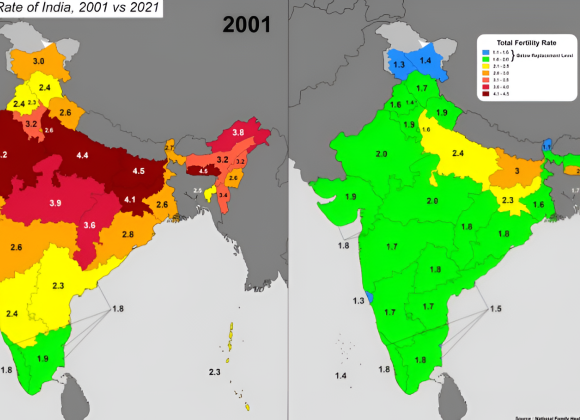When people hear the term domestic violence, most immediately think of bruises, broken bones, or physical harm. But one of the most insidious forms of abuse often leaves no visible scars—emotional abuse.
In India, emotional abuse is alarmingly widespread but often goes unrecognized. According to the National Family Health Survey (NFHS-5) conducted between 2019–21, about 30% of ever-married women aged 18–49 have experienced spousal violence, which includes emotional, physical, or sexual abuse. Among these, a significant number reported emotional violence, such as being humiliated, threatened, or insulted by their partners. Unfortunately, due to deep-rooted cultural norms, many cases go unreported or unacknowledged, especially in rural and conservative households.
Unlike physical violence, emotional abuse chips away at a person’s self-esteem, mental health, and sense of identity over time. It can occur in any relationship—marital, familial, or romantic—and often goes unnoticed by outsiders. Worse, many victims don’t realize they’re being abused because there’s no physical evidence.
What is Emotional Abuse?
Emotional abuse is a form of psychological manipulation in which one person uses words or actions to exert control over another, often in a close or intimate relationship. Unlike physical abuse, it doesn’t leave visible scars, but it can deeply damage a person’s sense of self, emotional stability, and overall mental health. The abuse is often subtle, persistent, and difficult to identify, especially in its early stages. It typically involves behavior that aims to belittle, humiliate, or undermine the victim’s confidence and independence.
Victims of emotional abuse may be constantly criticized, blamed for things that aren’t their fault, or made to feel worthless. Over time, the abuser may isolate them from family and friends, distort facts to make them question their own judgment, or create an environment of fear through threats or intense emotional outbursts. These patterns are designed to make the victim feel powerless and dependent, eroding their self-worth and increasing their vulnerability.
Common Forms of Emotional Abuse
- Gaslighting: This involves manipulating someone into doubting their own memory, perception, or sanity. Abusers may deny events, twist facts, or insist the victim is “imagining things.”
- Constant Criticism and Belittling: The abuser may frequently insult or demean the victim, making them feel worthless or incapable. Over time, this erodes self-confidence and self-worth.
- Control and Manipulation: Emotional abusers often try to control their partner’s daily life—what they wear, who they meet, or how they spend money—under the guise of concern or protection.
- Isolation: The abuser may deliberately distance the victim from friends, family, or support networks to increase dependence and reduce outside influence.
- Blame-Shifting: Abusers rarely take responsibility for their actions and often blame the victim for everything that goes wrong in the relationship, creating guilt and confusion.
- Silent Treatment: Withholding communication or affection as a punishment is another subtle yet powerful form of emotional manipulation meant to destabilize and control.
Why It’s So Dangerous
Emotional abuse is dangerous because it operates silently, slowly dismantling a person’s self-esteem, identity, and mental health. Unlike physical violence, its scars are invisible, which makes it harder for victims—and even outsiders—to recognize. Over time, the constant manipulation, criticism, and control can lead to anxiety, depression, panic attacks, and even suicidal thoughts. Victims often begin to believe they are at fault or that they deserve the treatment they’re receiving. This psychological damage can be long-lasting and just as severe as physical abuse, trapping individuals in toxic relationships with little sense of self-worth or hope for escape.
Why It Often Goes Unnoticed
Emotional abuse often goes unnoticed because it leaves no visible wounds and can be easily mistaken for normal relationship conflict or strict behavior. Abusers are frequently skilled at presenting a charming or caring facade in public, which makes it harder for others to suspect anything is wrong. Victims themselves may not recognize the abuse, especially when it’s disguised as concern, love, or discipline. In cultures where emotional expression is discouraged or where traditional gender roles dominate, such behavior is often normalized or dismissed. As a result, victims may suffer in silence, believing their experiences are not serious enough to seek help—or worse, that they are to blame.
How to Recognize Emotional Abuse
Recognizing emotional abuse can be difficult, especially when it develops gradually. However, there are common signs and patterns that may indicate abuse:
- You Constantly Doubt Yourself: You often question your memory, decisions, or perception of events, especially after interactions with the other person.
- You Feel Like Nothing You Do is Ever Good Enough: No matter how much effort you put in, you’re met with criticism, sarcasm, or disappointment.
- You’re Afraid to Speak Up or Disagree: You walk on eggshells, avoiding conflict because you’re afraid of how the other person will react.
- You Feel Isolated or Cut Off: The abuser may discourage or prevent you from seeing friends or family, making you increasingly dependent on them.
- You Blame Yourself for Everything: Even when things clearly aren’t your fault, you feel guilty or responsible—especially when the abuser insists it’s your doing.
- You’re Being Controlled: The other person dictates how you dress, where you go, how you spend money, or who you can interact with.
What to Do if You or Someone You Know Is Affected
If you or someone you care about is experiencing emotional abuse, it’s important to understand that help is available and no one deserves to be treated this way. The first step is recognizing the abuse and acknowledging that the behavior is harmful. This can be difficult, especially if the victim has been manipulated into self-doubt, but it is crucial for breaking the cycle.
If you’re personally affected, talk to someone you trust—a friend, family member, therapist, or support group. Keeping a journal of incidents can help you gain clarity and serve as evidence if needed. Set boundaries when possible, and avoid justifying or excusing the abuser’s behavior. Seeking help from a mental health professional can provide tools for coping, healing, and regaining self-worth.
If someone you know is being emotionally abused, approach them with empathy, not judgment. Offer support, listen without pushing, and remind them that they are not alone. Encourage them to seek professional help or contact a domestic violence support organization.
In India, resources like the National Commission for Women (NCW) or women’s helplines (like 181) provide free assistance. NGOs such as Snehi, Sakhi, and Breakthrough also offer psychological support and guidance.
Emotional abuse may be invisible, but its impact is real—and recovery is possible with the right support.
Author’s View
As the author of this blog, I believe emotional abuse is one of the most misunderstood and overlooked forms of domestic violence. While it leaves no visible scars, its impact can be just as deep—silently eroding a person’s identity, confidence, and mental health. What makes it particularly dangerous is its subtlety and the way it is often normalized, especially in close relationships or culturally conservative settings.
Through this blog, I aim to shed light on the invisible wounds emotional abuse causes and to encourage open conversations around this critical issue. Everyone deserves to feel safe, respected, and valued in their relationships. Recognizing emotional abuse is the first step toward breaking free from it and supporting others who may be suffering in silence.
Awareness, empathy, and action are key. If we can collectively recognize the signs, support victims without judgment, and challenge the social norms that enable such abuse, we can move closer to a society where emotional well-being is treated with the seriousness it truly deserves.




